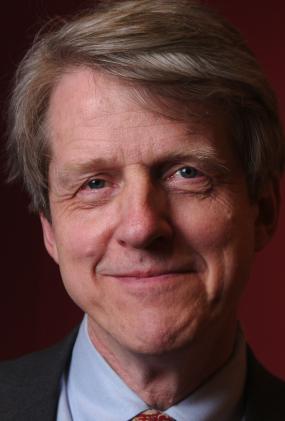
The 2013 Nobel Prize in economics has been awarded to three American economists: Eugene Fama, Lars Peter Hansen and Robert Shiller, for their “empirical analysis of asset prices”.
The announcement was made during last week’s US political shutdown, which held the global economy to ransom. So how does US’s economic dominance correlate with their Nobel prize success?
Since the first award in 1968, 47 Americans have won the prestigious award out of a total of 74 winners.
This year’s American trio were described by the Nobel committee as having “laid the foundation for the current understanding of asset prices”, which is important to everyone who has invested in anything from shares to a house.
Director of research at Kingston University, Vince Dally, agreed: “They have made central and substantial contributions to the theoretical frameworks and empirical methods that are used to analyse the behaviour of asset prices.”
Fama, 74 from Chicago University, created the efficient market hypothesis to demonstrate that individual share prices are extremely difficult to predict in the short run, but long term market fluctuations are steadier and more predictable.
Yale’s Professor Shiller, used this research to prompt his own. He concluded it was possible to value a market using a cyclically adjusted price or earning ratio: stocks are therefore predictable in the long term.
Hansen, also from Chicago University, developed a statistical method that was able to test theories on asset pricing and provide empirical evidence for Shiller’s research.
Together they give a full picture of how asset prices work, although in places their works seem to contradict one another. Dally confirms this is a natural part of scientific discourse.
He adds: “Maybe we notice [the theoretical differences] more in economics because economists often study issues that affect us on a day to day basis.”
Notably this research appeals to the currently cautious economy. Shiller’s work on financial bubbles is central to the UK debate around house price increases.
Shiller said his own work is a “minor addendum to a huge body of work”.
Although his reference is most relative to time and a modest nod to his co-winners, it should also be noted that there has been an international oeuvre gathering about asset pricing, with equally compelling research.
Dr. Paul Auerbach, Kingston reader in economics said: “Others are now matching the US in analytical facility but, perhaps from pure momentum, the US still controls the grounds of what is considered ‘legitimate’ discourse.”
American economists prosper from being at the centre of arguably the most important world economy, so their work recieves the most publicity and is therefore is seen as the most important and influential to the Nobel comittee.
As James Mackintosh, Financial Times Investment Editor, wrote, the Nobel prize “offers a handy guide to who is most famous”.
Photograph curteosy of Rex/Dan Callister




